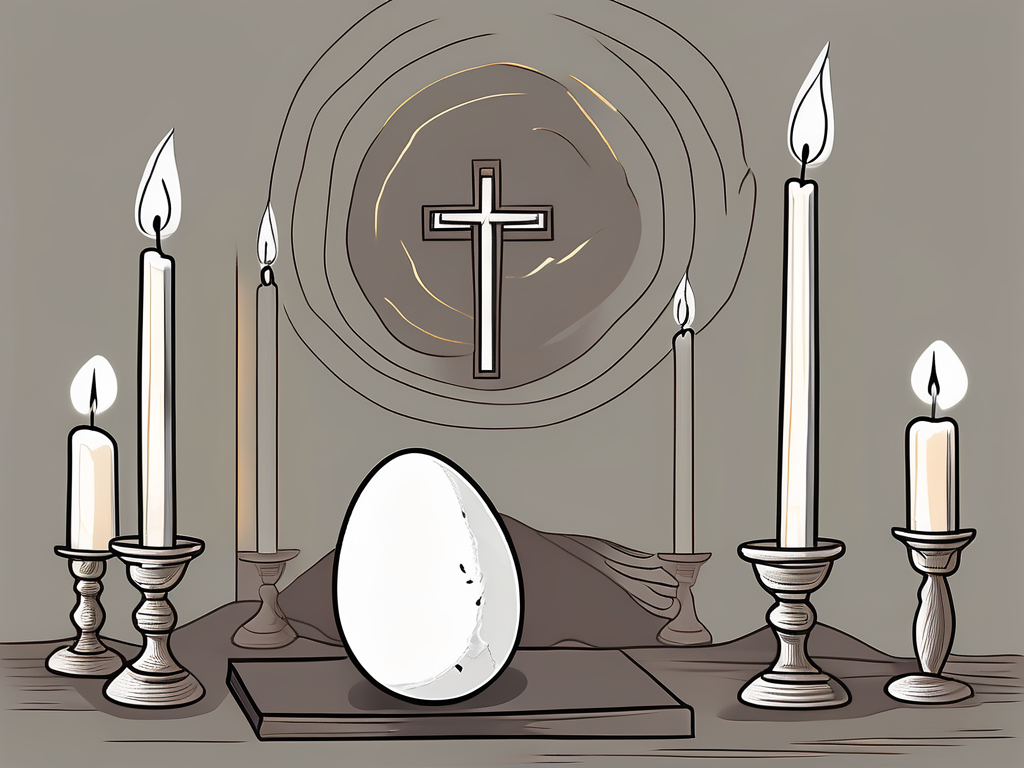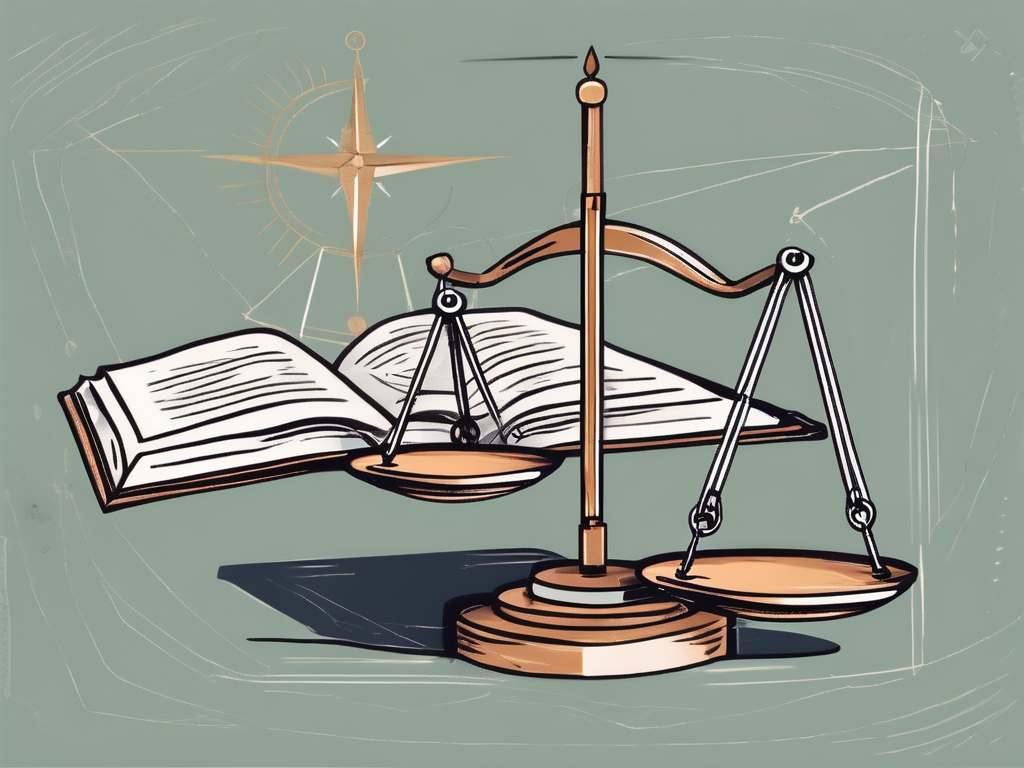Abortion is a topic that sparks intense debate and controversy in today’s society. Many turn to religious texts, such as the Bible, to seek guidance and clarity on this issue. In this article, we will explore what the Bible says about abortion and examine various perspectives from a theological and ethical standpoint.
Understanding the Concept of Abortion in Biblical Context
When discussing abortion in a Biblical context, it is essential to grasp the origin and meaning of this practice. Abortion refers to the deliberate termination of a pregnancy, resulting in the death of the fetus. The Bible does not explicitly mention the term “abortion,” but it provides insights into the sanctity of life and the nature of unborn children.
The Origin of Abortion and Its Meaning
From a Biblical standpoint, the origins of abortion can be traced back to the fall of humanity. In Genesis, the story of Adam and Eve reveals the consequences of their disobedience to God. This event introduced sin and suffering into the world, including the termination of innocent life.
However, it is important to note that the Bible does not explicitly address the issue of abortion as a specific act. Instead, it offers principles and teachings that can guide believers in understanding the value of life and the implications of actions that result in the termination of pregnancy.
Furthermore, the Bible emphasizes that every life is precious and formed by God Himself. In Psalm 139:13-16, King David acknowledges that God knitted him together in his mother’s womb, highlighting the divine involvement in the creation of each individual. This understanding brings profound implications for the topic of abortion.
When contemplating the concept of abortion in a Biblical context, it is crucial to consider the divine intention behind the creation of life and the responsibility entrusted to humanity to protect and nurture it.
The Bible’s Perspective on Life and Death
Throughout the Bible, life is regarded as a gift from God and, therefore, inherently valuable. The Ten Commandments include a commandment against murder, highlighting the sacredness of human life. This perspective extends to the unborn, as they are seen as bearing the image of God.
However, the Bible also recognizes that death is an inevitable part of the human experience. It speaks about miscarriages, stillbirths, and infant mortality, emphasizing the complexities of life and the reality of human suffering. While loss and tragedy are acknowledged, the intentional termination of a pregnancy raises distinct ethical questions.
As believers grapple with the issue of abortion, they must navigate the tension between the sanctity of life and the complexities of human existence. The Bible provides a framework for considering the value of life, the responsibility to protect it, and the compassion needed to support those facing difficult circumstances.
Furthermore, the Bible encourages believers to extend grace and love to individuals who have been involved in abortion decisions. It emphasizes the importance of forgiveness, healing, and restoration, recognizing that God’s mercy is available to all who seek it.
In conclusion, while the Bible does not explicitly address the act of abortion, it offers principles and teachings that guide believers in understanding the sanctity of life and the complexities surrounding the termination of pregnancy. It calls for compassion, grace, and a deep reverence for the value of every human life.
Biblical Passages Interpreted in Relation to Abortion
Examining specific Biblical passages and interpreting them in the context of abortion provides further insight into this complex issue. The Bible, as a religious text, holds great significance for many individuals and communities, and its teachings are often used to shape moral and ethical perspectives.
When delving into the topic of abortion, it is important to explore both the Old Testament and the New Testament, as they offer different perspectives and insights.
Old Testament References and Their Implications
In the Old Testament, the Bible touches on pregnancy, childbirth, and instances that indirectly relate to the topic of abortion. For instance, the story of Jacob and Esau in Genesis 25:21-28 illustrates the importance of children being born as a blessing from God. This narrative emphasizes the value placed on the lives of unborn children and the significance they hold within the divine plan.
However, it is crucial to note that the Old Testament primarily focuses on legal and ceremonial laws rather than directly addressing the act of abortion. This lack of explicit mention contributes to differing interpretations and viewpoints among religious scholars. Some argue that the absence of explicit condemnation of abortion in the Old Testament suggests a more nuanced understanding of the issue, while others maintain that the silence should not be interpreted as condoning the act.
Moreover, the Old Testament contains various passages that highlight the sanctity of life and the responsibility to protect the vulnerable. For example, in Exodus 21:22-25, the accidental causing of a miscarriage is treated as a serious offense, indicating the value placed on the unborn child’s life. This passage raises questions about the moral implications of intentionally terminating a pregnancy.
New Testament Verses and Their Interpretations
Turning to the New Testament, the teachings of Jesus and the apostles offer insights into principles that can be applied to discussions surrounding abortion. Jesus’ teachings often emphasized compassion, love, and the value of every human life.
One frequently cited passage is Matthew 19:14, where Jesus welcomes children and emphasizes their significance in the Kingdom of Heaven. This verse conveys the idea that every child should be valued and protected, including those in the womb. It suggests that the unborn should be regarded as deserving of care and consideration.
Furthermore, passages like Luke 1:41 and Jeremiah 1:5 present instances where babies, including Jesus and the prophet Jeremiah, are recognized and blessed even before birth. These verses provide a basis for arguments supporting the belief that life begins at conception. They highlight the divine recognition and value placed on the unborn, reinforcing the idea that they should be treated with reverence and protected from harm.
However, it is important to acknowledge that interpretations of these passages may vary. Some argue that these verses primarily emphasize the unique calling of specific individuals rather than making a definitive statement about the beginning of life. Others contend that these passages, along with other teachings in the New Testament, provide a strong foundation for the belief that life should be protected from conception onwards.
Ultimately, the interpretation of Biblical passages in relation to abortion is a complex and nuanced matter. It involves considering historical and cultural contexts, as well as the broader teachings and principles found within the Bible. Religious scholars and individuals continue to engage in thoughtful dialogue and debate as they seek to understand and apply these teachings to the contemporary issue of abortion.
Theological Perspectives on Abortion
When considering abortion from a theological standpoint, different religious traditions offer varied perspectives. Let us explore the stances of the Catholic Church and Protestant denominations.
The Catholic Church’s Stance on Abortion
The Catholic Church views abortion as a grave sin and an offense against the sanctity of life. According to the Catechism of the Catholic Church, abortion is considered morally wrong as it directly violates the fifth commandment, “You shall not kill.”
The Church teaches that human life begins at conception, and every innocent human life, from conception to natural death, must be protected and cherished. The intentional termination of a pregnancy is seen as the deliberate taking of an innocent life and is condemned by the Catholic Church.
Within the Catholic Church, the belief in the sanctity of life extends beyond the issue of abortion. It also influences the Church’s stance on topics such as euthanasia, capital punishment, and assisted suicide. The consistent ethic of life, as advocated by the Church, emphasizes the inherent dignity and worth of every human being, regardless of their stage of development or circumstances.
Furthermore, the Catholic Church provides support and resources for women facing unplanned pregnancies. Through organizations such as Catholic Charities and pregnancy resource centers, the Church aims to offer alternatives to abortion and provide assistance to those in need.
Protestant Views on Abortion
Protestant denominations hold diverse views on the issue of abortion, with interpretations varying among different churches and individuals. While some Protestant groups adopt a stance similar to the Catholic Church, believing that abortion is morally wrong, others take a more nuanced approach.
Protestant perspectives often consider factors such as the woman’s circumstances, health risks, and the potential for irreparable harm to guide their beliefs. While the sanctity of life is prioritized, some may advocate for certain exceptions, such as cases involving rape, incest, or the endangerment of the mother’s life.
Within Protestantism, there is a wide range of theological and ethical frameworks that shape individual perspectives on abortion. Some emphasize the importance of personal autonomy and the woman’s right to make decisions about her own body, while others prioritize the protection of the unborn child’s life.
It is important to note that Protestant denominations often encourage open dialogue and respectful engagement on the topic of abortion. Churches may provide opportunities for members to discuss and explore different perspectives, seeking to understand the complexities of the issue and the underlying theological principles at play.
Moreover, many Protestant churches actively engage in social justice initiatives related to reproductive health. They may support comprehensive sex education, access to contraception, and programs that provide support and resources for women facing unplanned pregnancies. These efforts reflect a commitment to address the root causes of abortion and promote the well-being of women and families.
In conclusion, the theological perspectives on abortion within the Catholic Church and Protestant denominations reflect a range of beliefs and interpretations. While the Catholic Church maintains a strict stance against abortion, emphasizing the sanctity of life from conception to natural death, Protestant views vary, taking into account factors such as individual circumstances and potential harm. Regardless of one’s religious beliefs, the issue of abortion continues to be a complex and deeply personal topic that requires thoughtful consideration and compassionate dialogue.
Ethical Considerations and Biblical Teachings
When discussing abortion, ethical considerations come into play alongside Biblical teachings. The Bible offers guidance on the sanctity of life and moral dilemmas faced by individuals grappling with this issue.
The Sanctity of Life in Biblical Teachings
The Bible repeatedly affirms the sanctity of life and emphasizes that each individual is uniquely created by God. This core belief forms the foundation for many arguments against abortion among religious communities.
However, it is crucial to acknowledge that maintaining the sanctity of life also involves addressing the physical, emotional, and mental well-being of mothers. Compassionate support for women facing unplanned pregnancies is an essential aspect of upholding the sanctity of life.
Moral Dilemmas and Biblical Guidance
When individuals find themselves in morally challenging situations, the Bible provides principles that can guide decision-making. Considering the complexity of the abortion debate, believers may turn to passages such as 1 Corinthians 10:31, which encourages acting in ways that honor God and benefit others.
Seeking wisdom through prayer, studying the Scriptures, and seeking counsel from trusted spiritual leaders can provide guidance for individuals grappling with these moral dilemmas. It is essential to approach these discussions with empathy and understanding, recognizing the nuanced nature of personal circumstances.
The Role of Forgiveness and Compassion in the Abortion Debate
Amid the heated abortion debate, it is vital to address the concepts of forgiveness and compassion as integral components of the Christian faith.
The Concept of Forgiveness in the Bible
The Bible teaches the power and importance of forgiveness. Recognizing that people may have made choices inconsistent with Biblical teachings, the Bible offers the assurance of God’s forgiveness to all who seek it.
Regardless of one’s stance on abortion, grace and compassion need to be extended to individuals who have been affected by this issue. Encouraging a supportive environment that promotes emotional healing and understanding is crucial.
Compassion and Understanding in Biblical Teachings
The Bible consistently emphasizes the call to show compassion and love towards one another. Christians are urged to walk alongside individuals facing difficult decisions and offer them support, understanding, and practical assistance.
Providing compassionate alternatives and resources to women considering abortion, such as pregnancy centers, adoption support, and post-abortion counseling, can help foster an environment that upholds both grace and truth.
Conclusion
Understanding the Biblical perspective on abortion is a nuanced and complex endeavor. While the Bible may not explicitly mention the term “abortion,” it offers principles and teachings that inform discussions on the sanctity of life, moral dilemmas, and the importance of forgiveness and compassion.
As individuals grapple with this highly sensitive issue, it is crucial to approach the conversation with empathy, listening to different viewpoints, and seeking a deeper understanding of the complex factors at play. Ultimately, may our discussions and actions reflect the love, grace, and wisdom found in the pages of the Bible.












